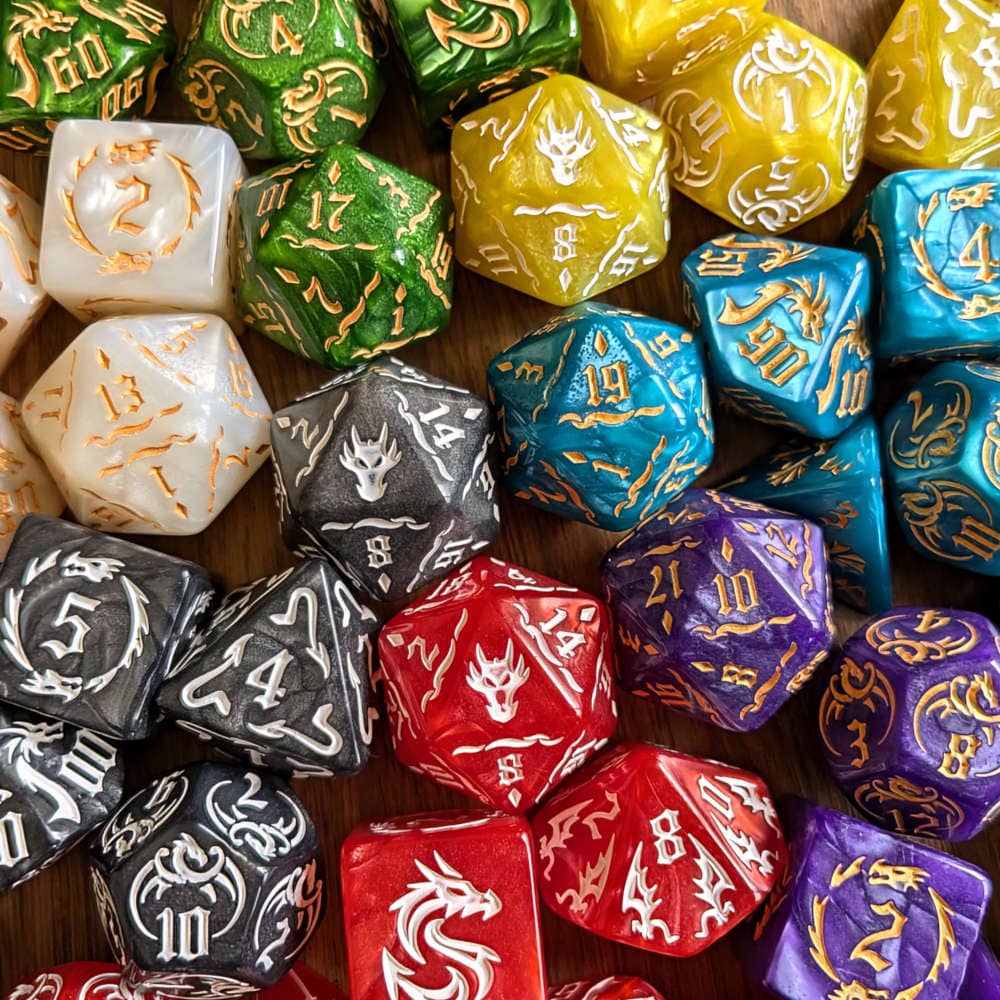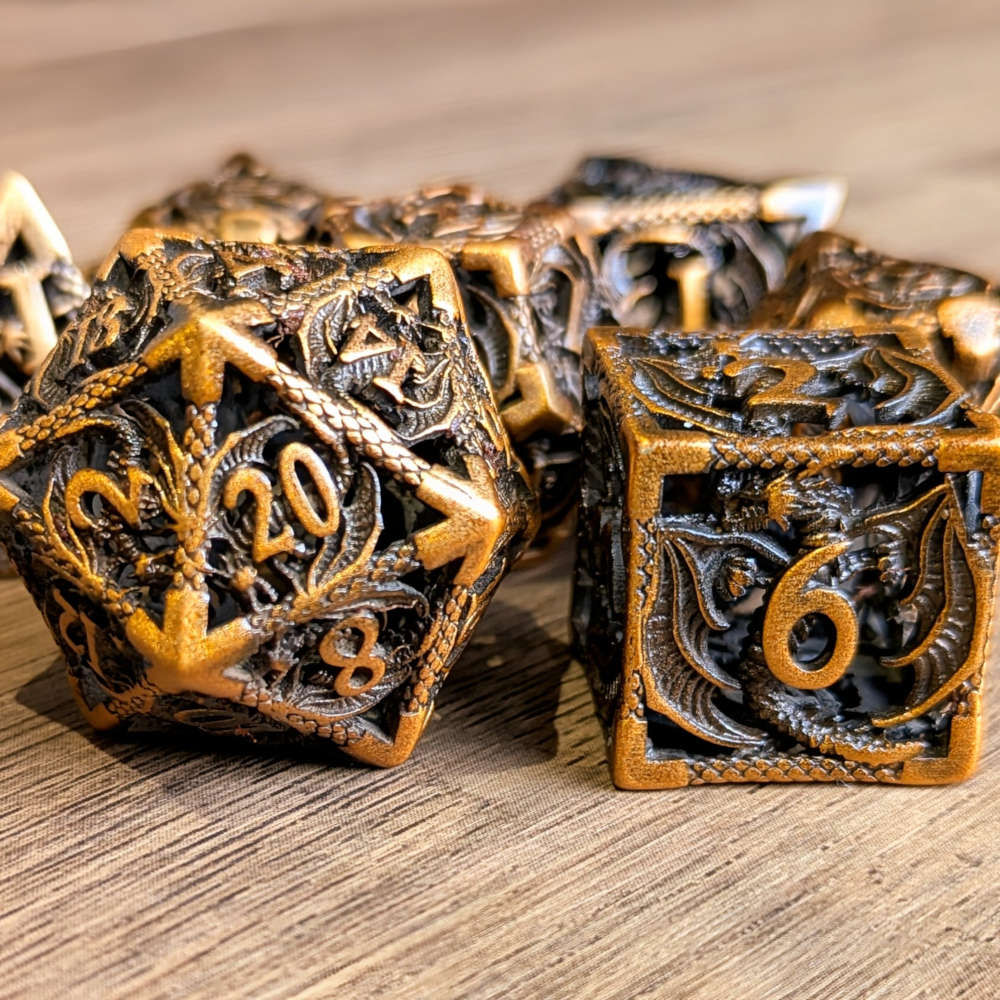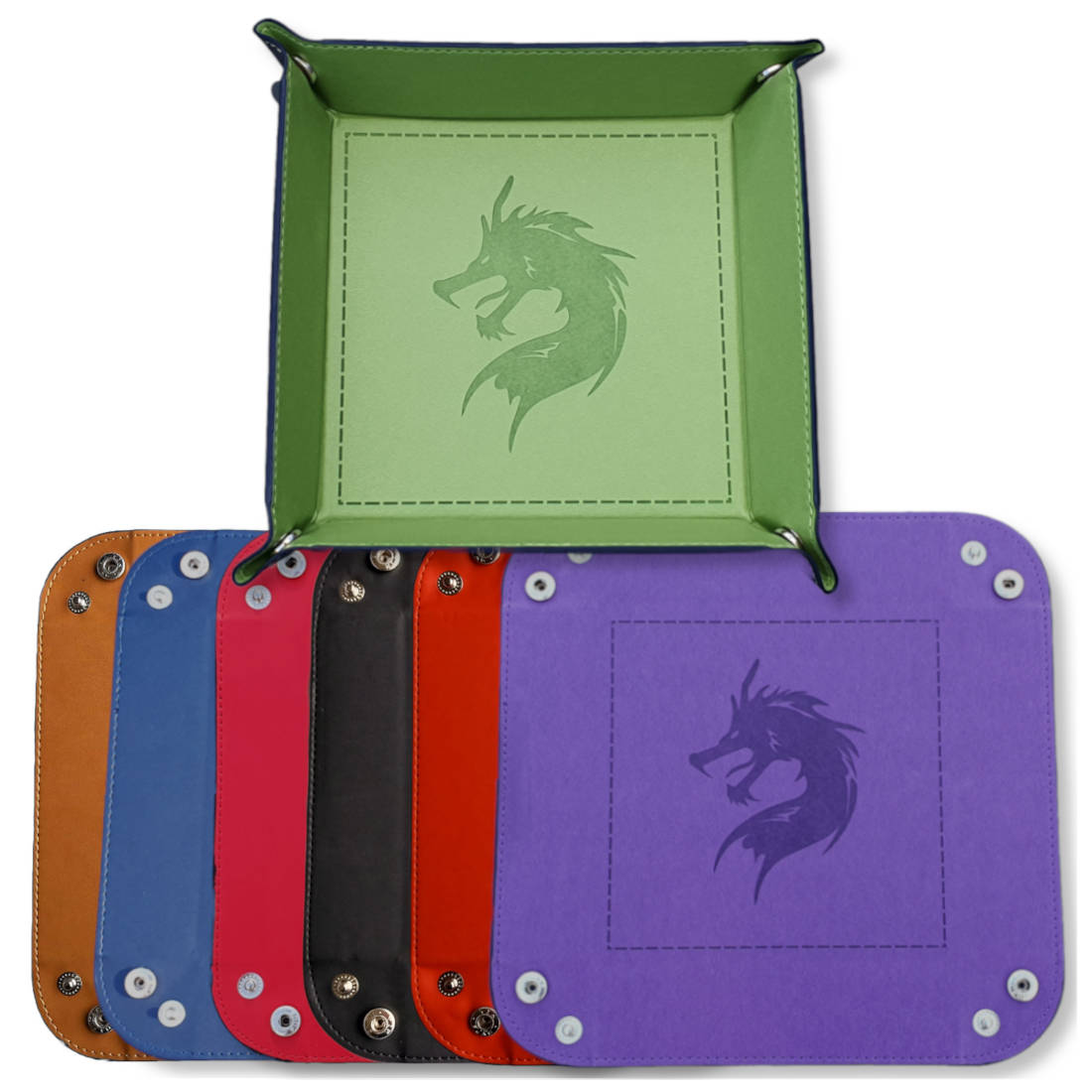How to become a better D&D player

Dungeons & Dragons (D&D) is more than just a game - it’s a shared storytelling experience where every player helps shape the adventure. Knowing the rules is important, but becoming a better D&D player goes beyond mechanics. It’s about teamwork, creativity, and bringing your character to life.
In this guide, we’ll explore how to become a good D&D player, from improving roleplaying to working better with your party, so you can make every session more fun and immersive.
How to become a better D&D player
Want to improve your experience? Here are 10 simple tips to help you become a better D&D player and make your games more enjoyable.
1. Build a character that fits the game
Your character should feel like part of the world and the party. Work with your Dungeon Master (DM) to ensure your backstory fits the setting and consider how your character interacts with the group.
2. Know your character sheet and keep it updated
Learn your abilities, spells, and features so you’re not slowing down the game looking things up. Keep your sheet updated when you level up or get new gear. Being prepared helps everything run smoothly.
3. Be involved and proactive
D&D is a team game - don’t just sit back and watch. Engage with the story, interact with NPCs, and take initiative in and out of combat. The more effort you put in, the more rewarding the game becomes.
4. Take notes
Keep track of important NPCs, locations, and story details by taking notes of your D&D sessions. This helps you remember key information and makes you a more engaged player. It also makes it easier to solve puzzles or recall past events when needed.
5. Get invested in the game
Give your character a personality, backstory, and motivations that make them fun to play. The more you invest in your character, the more immersive and enjoyable the game will be for you and your group. For more help with this, check out our guide to creating a unique D&D character.
6. Be ready for your turn in combat
Think about what you’ll do before your turn comes up. D&D combat can take time, and being prepared keeps things moving. Know your abilities and have a backup plan in case things change.
7. Share the spotlight
Everyone at the table deserves a moment to shine. Let other players take the lead sometimes and support their moments. D&D is about collaboration, not competition.
8. Be respectful and communicate
Respect your fellow players and DM. If you have an issue, discuss it outside the game. Clear, open communication helps avoid misunderstandings and keeps the game fun for everyone. And if it ever gets to it, know how to tell your DM you’re not having fun.
9. Embrace every roll
Success and failure both make great stories. Instead of getting frustrated by a bad roll, lean into it - it might lead to a hilarious or dramatic moment that makes the game even better.
10. Have fun
Above all, remember that D&D is about having fun and creating shared stories with friends. Don't get too caught up in the mechanics or optimisation; focus on enjoying the adventure and the camaraderie of the game.
Essential skills for becoming a good D&D player
Being a good D&D player isn’t about rolling the best stats or the size of your dice collection - it’s about developing key skills that make the game more fun for everyone. Here are some important skills to work on:
- Teamwork: D&D is a collaborative game, and success often depends on working well with your party. Support your teammates, play to your strengths, and help make decisions that benefit the whole group, not just your character.
- Problem-solving: From tricky puzzles to tough battles, D&D is full of challenges. Thinking creatively and strategically will help you overcome obstacles, whether it’s deciphering a riddle, planning an ambush, or making a clever deal with an NPC.
- Roleplaying: Bringing your character to life by roleplaying makes D&D more immersive and enjoyable. Develop their personality, motivations, and quirks, and interact with the world and other characters in a way that fits their story.
- Rules knowledge: You don’t need to memorise every rule, but knowing the basics helps the game run smoothly. Learn how your character’s abilities work, understand combat mechanics, and be open to learning as you play.
- Decision-making: Whether it's choosing an attack in combat or making a tough moral choice, good decision-making keeps the story moving. Think about what your character would do, but also consider what makes the game fun and engaging.
- Adaptability: D&D is unpredictable - plans go wrong, dice rolls fail, and the story takes unexpected turns. Being flexible and embracing surprises makes the game more exciting and prevents frustration when things don’t go as expected.
- Communication: Clear communication with your fellow players and the DM keeps the game flowing. Explain your actions, ask questions when needed, and make sure everyone understands what’s happening in and out of character.
- Patience: D&D sessions can be long, and not every moment will focus on your character. Be patient during combat, listen when others are roleplaying, and enjoy the story even when you’re not in the spotlight.
These skills improve with time and practice, and the best D&D players are always learning. Focus on teamwork, creativity, and storytelling, and you’ll make the game more enjoyable for everyone at the table.
What not to do as a D&D player
Avoiding bad habits can help make the game more enjoyable for everyone at the table. Ensure you’re not a D&D problem player but avoiding the following things:
- Don’t be a lone wolf: A mysterious or aloof character can be fun, but isolating yourself too much can disrupt the party dynamic. D&D is about teamwork - make sure your character has reasons to cooperate and engage with the group.
- Don't hog the spotlight: D&D is a shared story, and everyone deserves their moment to shine. Let other players contribute and avoid dominating roleplaying scenes or combat.
- Avoid meta-gaming: Make decisions based on what your character knows, not what you know as a player. If you’re unsure whether you’re using out-of-character knowledge unfairly, check in with your DM.
- Don't be disruptive: Stay focused on the game - side conversations, constant rule debates, or derailing the plot can break immersion and frustrate other players.
- Avoid excessive min-maxing: Building an effective character is great, but don’t focus only on optimising stats at the expense of roleplaying. A balanced character with strengths, flaws, and personality makes the game richer.
- Don't be uncooperative: Occasional interparty conflict can be interesting, but it should enhance the story, not create real-world tension. Check in with other players to ensure everyone is comfortable.
- Don’t control other players’ actions: Let your fellow players make their own choices. D&D is about collaboration, not dictating how others should play their characters.
- Don't ignore the story: Combat is exciting, but D&D is also about storytelling. Engage with the narrative, interact with NPCs, and explore the world beyond just fighting monsters.
- Don't take failures personally: Bad dice rolls and setbacks happen, but they create some of the best moments in D&D. Embrace failures as part of the adventure rather than getting frustrated.
- Don’t be late or distracting: Respect your DM and fellow players by showing up on time and staying engaged. Everyone puts effort into the game, so be considerate of their time.
By avoiding these habits, you’ll help create a more enjoyable and immersive experience for everyone at the table.
Ways to help your Dungeon Master
Supporting your DM not only makes their job easier but also improves the game for everyone. Give constructive feedback and let them know what you’re enjoying. Offer to help with small tasks like tracking initiative, scheduling sessions, or recapping the last game. Show up on time, and if you can’t make a session, give as much notice as possible.
By assisting your DM, you contribute to a smoother, more immersive game - and you’ll likely become a better D&D player in the process!
Treat yourself to some new dice
If you're looking to take your D&D experience even further, why not explore the world of Dungeon Mastering? Check out our guide on how to become a better Dungeon Master - many of the skills you develop as a player can help you craft epic stories and unforgettable adventures from behind the screen.
Want to enhance your tabletop sessions? Browse our collection of Dungeons & Dragons dice and square dice trays. Whether you're rolling for a critical hit or weaving a dramatic tale, these accessories add style, precision, and a touch of magic to every game!





